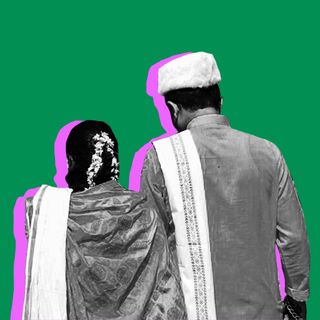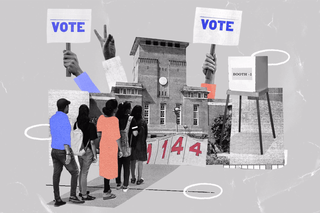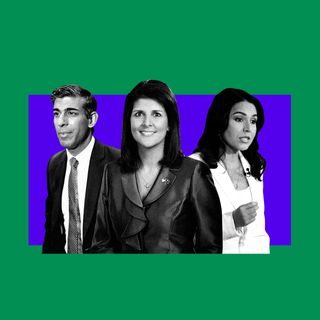
JNU, DU Haven’t Had Student Elections in Three Years. This Could Change a Generation of Students’ Political Worldview
“The future belongs to the students. They need to have a say in policy and in the kind of society they wish to see. Student politics provides a medium to express it.”

Before the Covid-19 pandemic, the month of September used to be an important, exciting, and eventful period in pockets of Delhi. It was the time student union elections were held in the University of Delhi (DU) as well as the Jawaharlal Nehru University (JNU), two of the country’s premium central universities. The active and vibrant political climate at these two universities has always set them apart from several others in the country. And since the university elections are held in the national capital, they have always been closely followed annual events, with a number of politicians and policymakers taking part in the past.
However, more than three years have now passed since elections were last held in either of these campuses. This anomaly is significant not only because of how it has disrupted student lives but also because it may signal larger and more national underlying issues.
“The primary reason student politics is important is that it teaches students democracy and democratic participation,” says N. Sai Balaji, the current national president of the left-wing All India Students’ Association. “Because the future belongs to the students, they need to have a say in policy and in the kind of society they wish to see. Student politics provides a medium to express it.”
Student unions are generally not supposed to last for more than a year. However, in these two universities, student politics has become so stagnant that some of the members in these unions are no longer students – a prerequisite to be able to stand for these elections.
Although this is not the first time one of these universities have stalled elections (the JNU Students’ Union elections were suspended during 2008–12 due to non-compliance with election norms), the current situation is unique for various reasons. For one, the reason behind the non-occurrence of these elections is rooted not in formalities but in what appears to be administrative apathy.
Second, although the administration has been quoting logistical issues as a reason for not holding elections, it does not explain why entrance and admission processes continue to be delayed well into 2023, almost one year since regular academic functioning began in these universities. However, something that could perhaps explain the delay is larger political pressure.
Related on The Swaddle:
How Community Education Collectives Are Challenging Existing and Increasing Educational Inequality
During the winter of 2019–20, shortly after student union elections were held for the last time in DU and JNU, these campuses became highly politically charged places. In November, JNU students began a long protest against proposed fee hikes in the university. Soon after, when the Union Government enacted the Citizenship Amendment Bill in December 2019, protests broke out in both DU and JNU as well as in several other universities throughout the country. Minority institutions like the Jamia Millia Islamia University in Delhi and the Aligarh Muslim University in Uttar Pradesh faced unprecedented violence as the state attempted to forcefully curb these protests. During this time, the then Union Minister for Human Resources Development, Ramesh Pokhriyal “Nishank,” appealed to various political parties to keep students in universities out of their politics.
“It is always in favor of the people in power to not have elections,” notes Balaji.
Journalist and historian Saib Bilawal believes that there might be additional political reasons for not conducting the elections. “The (JNU) administration is simply buying time.” He suggests that the administration is holding off elections till it can be sure of the prospects of a right-wing, pro-establishment, student union being elected. Over the last few years, through changes in the entrance and admission processes, “a lot of the demography of the university has changed. There are less political kids, their class character is different – with more affluent students entering the campus now – and there are more DJ events with Jai Shri Ram-type of songs.” These events have been making national news over the last couple years for proclaiming Hindu pride and blaring songs that use slurs, make derogatory remarks against minorities, and openly call for violence against them.
In its fourth year, the present union, Bilawal highlights, isn’t doing much against these kinds of events. Part of the reason is that it’s simply not practical for student unions to continue functioning for this long a period. “Not having elections puts too much pressure on the people who won them. For three years in a row, if you are going to have to play that role…most people are not prepared to do it,” Bilawal explains. Thus, a student union in its fourth year of office is probably not as effective as a newly elected one.
“It is a question of intent, and they (the university administrations) don’t have the intent,” Balaji says, adding, “because they don’t want it to happen. It is visible in their actions.”
Further, as Sumit Kumar, the former Delhi president of the Students’ Federation of India, points out, “elections to other bodies within the universities were held within these academic irregularities. The Delhi University Teachers’ Association had their elections in late 2021.” Even in JNU, the Teachers’ Association elected a new panel of representatives in March 2022. Kumar also points out how student elections have resumed in some other universities in the country – many of them also facing similar logistical constraints due to the pandemic. “If student union elections could take place in Rajasthan, then they definitely could have taken place in DU or JNU too.” Thus, it is certainly questionable for the administrations in these universities to not have conducted the union elections.
The significance of these elections are upheld by student activists and politicians across ideological lines. Ashutosh Singh, former media head of the Akhil Bharatiya Vidyarthi Parishad (ABVP), the student wing of the Rashtriya Swayamsevak Sangh (RSS), spells out the importance of these elections in a recent piece: “When I came to DU in 2014, there were massive protests against the Four Year Undergraduate Program (FYUP) and eventually the university administration had to bow down to students’ pressure and roll back the FYUP.”
Interestingly, the controversial FYUP is one of the programs that the university administration decided to reintroduce as part of its implementation of the National Education Policy (NEP), a scheme that Balaji points out could not be protested adequately by the students owing to the absence of an active political climate. “If elections would have happened, there would have been an opportunity for students to discuss, debate, and contest elections on that agenda, establishing a feedback channel with the government,” Balaji explains. “The government knows that the students are going to oppose the policy, so it is trying to consolidate the NEP by withholding elections.”
Thus, student elections, and their absence, influence not only the politics of the university campus but also the academic – and subsequently, professional – future of all the students enrolled.
Related on The Swaddle:
The Miranda House Incident Exposes the Cracks in Society’s Upbringing of Men
In recent years, students actively pursuing politics through mainstream parties often “have one foot in national politics and the other in campus,” as Bilawal puts it. Sitaram Yechury, Arun Jaitley, Ajay Maken, and Kanhaiya Kumar are just few among the many people who have gone on to have a career in national politics after being a part of the student unions in these universities.
It is also true that, often, students running for these elections – especially those contesting from parties leaning towards the right – depend on money, muscle, and caste equations to win. Despite these issues, however, the elections continue to play a critical role.
Beyond upholding the lofty notions of democracy, and beyond grooming individuals for political life in the future, student union elections also serve a very practical purpose: to make students’ demands and grievances heard.
“Right before the elections, parties appeal to you and listen to you and talk about all the issues you are facing,” Bilawal explains. Even mainstream parties are compelled to listen to these issues in the run-up to the elections. “It is just for a few days, but they are still forced to do that. Without elections, even that one day’s worth of discussion of student’s issues won’t take place.”
“Life in the university is extremely bureaucratic,” Bilawal further explains. “For instance, every six months, you have to re-register for the semester – which is a seven-to-ten step process, and for which a student would usually require additional help.” Winning candidates, and party members of the winning candidates, help students deal with these bureaucratic processes. They also assist students with dealing with other day-to-day issues, such as the lights not working in the reading room or the water cooler malfunctioning.
In the second half of 2022, some student parties in DU started demanding that the university restart the student union election process. Despite these efforts, however, student elections remain out of sight for the time being. The most likely scenario is the elections being held during September this year, which too heavily depends on whether the authorities manage to sort out the administrative issues.
Ultimately, all this hints at the bureaucratic apathy and lack of will with which these universities have come to deal with the issues faced by their students. The universities’ reluctance to conduct elections, at best, highlights their indifference to the lives and well-being of the students. At worst, however, it indicates a possible political motivation to disrupt the democratic character of these institutions and manipulate ideological and political conversations.
Amlan Sarkar is a staff writer at TheSwaddle. He writes about the intersection between pop culture and politics. You can reach him on Instagram @amlansarkr.
Related


How Does the Law Protect People in Live‑in Relationships?
